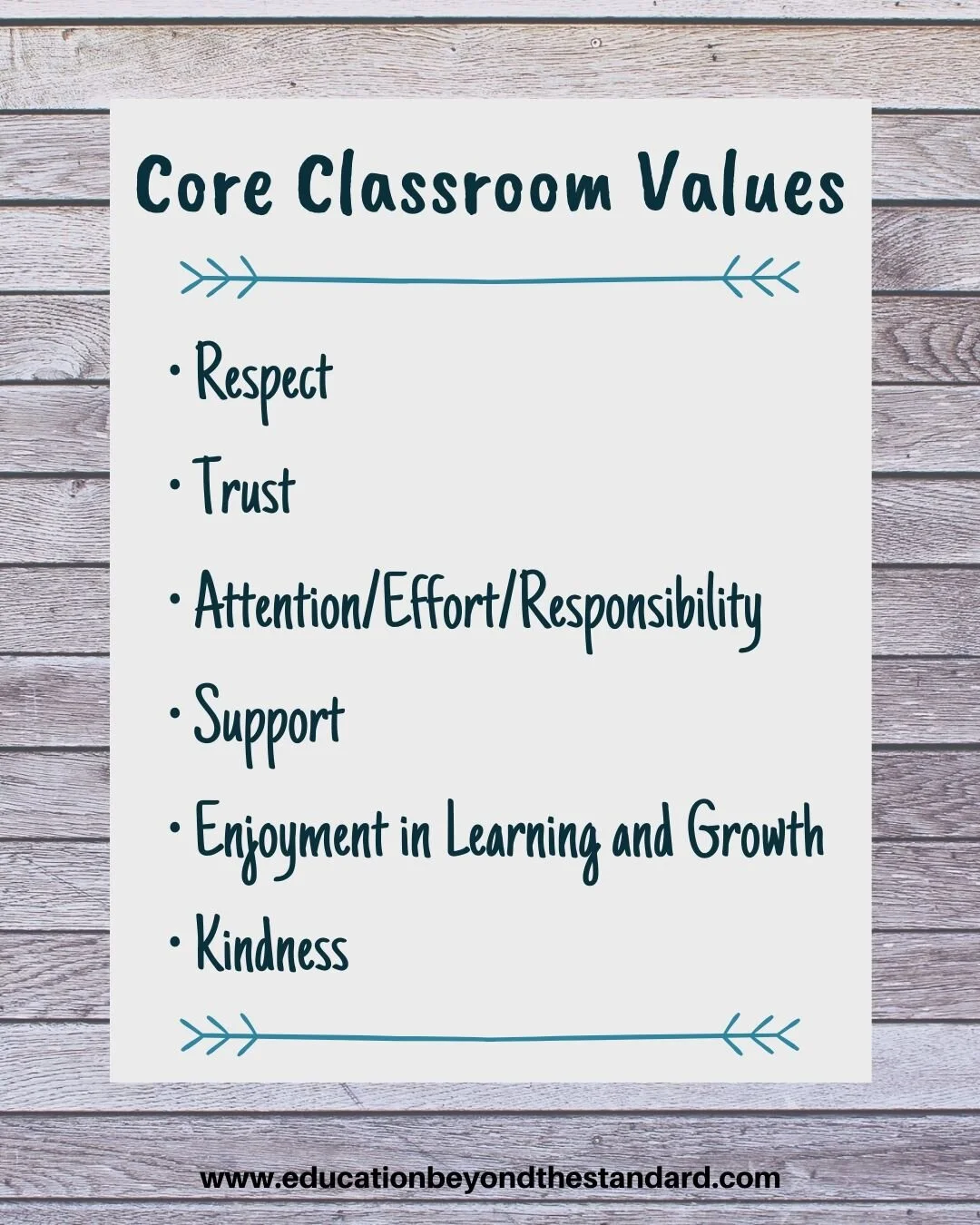Creating a Positive Secondary Classroom Culture
/As I went into my first year of teaching, I was far too overwhelmed to think about how I could consciously create a classroom culture. I did instinctively know that I wanted to establish an environment of trust, respect, and kindness, in line with my core values. But how to accomplish that?
As a more experienced teacher, I can now reflect a bit more on what a positive secondary classroom culture looks like and how we can build it. I also realize now that it’s not as hard as it may seem when you’re new to the classroom.
So what does a positive classroom culture look like? I define it as one that supports and enhances students’ learning, helps students take on challenges with a growth mindset, and promotes healthy social behaviors.
I think the first step in creating a positive classroom culture is getting to know our core values so we can be conscious about establishing classroom procedures, guidelines, and expectations that reflect them. What are some core values for the classroom that resonate with you? Here are a few of mine:
Respect
Trust
Attention/effort/responsibility
Support
Enjoyment in learning and growth
Kindness
Since I’m no longer in the classroom but still working with students as a tutor, I hear a lot about classroom cultures and management styles from students’ perspectives. Here are a few pieces of insight that I’ve gained from this experience:
Regardless of classroom management style, students can always sense (and always appreciate) when teachers truly care and are passionate about teaching.
Core classroom values such as trust, respect, and support start with teachers. Teachers who model these core values even in the face of behavioral issues lay the foundation for them to flourish in the classroom.
Consistently praising effort and improvement over perfection or traits like intelligence creates a supportive environment in which all students feel they can grow.
Clarity and consistency in the application of classroom rules and procedures helps to build a safe environment in which trust can develop.
Secondary teachers have the unique opportunity to “reset” students’ expectations about what a classroom experience can be. At the secondary level, kids are coming into the classroom with a wider variety of previous experiences in school, both good and bad. This means a greater variety of attitudes toward learning and ideas about appropriate classroom behavior.
With your core values and some student insights in mind, here are some thoughts for creating a positive secondary classroom culture, either from day one or to reset after a rocky period.
Communicate with clarity, warmth, and calmness what your expectations are. By communicating in this manner, you are modeling respectful, appropriate interactions and setting the standard for how you expect students to communicate in your classroom.
Put classroom rules, policies, and procedures in writing. You may even have students participate in the process of creating clear and fair policies.
Discuss the core values that you’ve identified and what they look like in action. Ask students to give examples of what each of the values looks like in action.
Provide clear, written academic expectations and policies, including late work, test retakes, extra help, and missed classes. Some of the most common issues I see with students I tutor involve these topics. You can avoid future confusion and disputes by clearly defining policies and students’ responsibilities from the beginning.
Have students sign all written policies and procedures to indicate they are in agreement with them.
If an issue arises that requires a change in classroom policies/procedures, discuss openly and clearly with students. As long as there is a clear rationale for the change, students will usually be on board.
Be authentic with students—if you make a mistake, acknowledge it. If a lesson or activity doesn’t go well, discuss it. Students don’t expect teachers to be perfect, and mistakes or bombed lessons can be a great opportunity for us to model accountability and authenticity.
Please let me know in the comments below if you have any tips or techniques for building a positive classroom culture at the secondary level!



